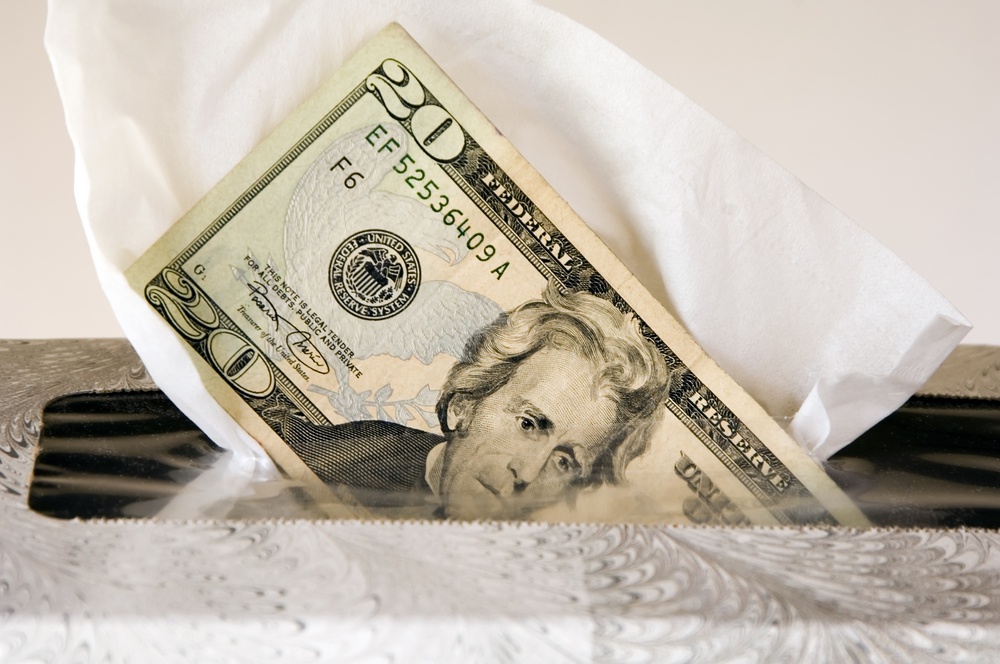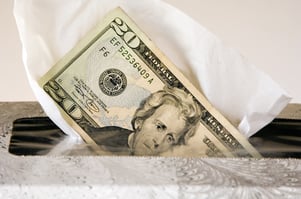How to Get an Overdraft Fee Reversed
Nobody likes overdrawing their account. While you might feel embarrassed about spending money you didn’t have, or using the wrong account for an...

In the world of finances, the two most reviled words are almost certainly “overdraft fee”. Getting an overdraft fee is adding insult to injury, punishing you for paying with money you didn’t have in your account by making you pay with more money you don’t have in your account.
Of course, nothing’s completely bad. After extensive research, we’ve discovered some reasons why people might actually enjoy paying overdraft fees. We're not saying they're good ones, but they are reasons.
 Overdraft fees are usually around $20 or $30 for each transaction. For most of us, that’s money that would be better spent on literally anything else, such as groceries, clothes or even going to the movies.
Overdraft fees are usually around $20 or $30 for each transaction. For most of us, that’s money that would be better spent on literally anything else, such as groceries, clothes or even going to the movies.
Some people, though, have more money than they know what to do with. They’ve already got a mansion, a few sports cars and maybe even a yacht or two. Sure, they’d like to spend their money on something, but what?
That’s where overdraft fees come in. By opening an account and racking up overdraft fee after overdraft fee, these people can get the joy of spending money without the complication of actually getting anything in return for it. It may sound crazy, but let’s be fair—the 1% already pay fees that would make most of us cringe, and overdraft fees are at least as useful as luxury items like gold toothpicks.
Some people are just more fun to talk with than others. If someone talks to a bank customer service representative while trying to get an overdraft fee reversed, it's entirely possible that they might enjoy the conversation that they had so much they might well want to rack up more overdraft fees so they can talk to the customer service representative again.
Of course, since this is real life and not a romantic comedy this is a fantastically bad idea. You’re probably not going to get the same customer service representative each time, and even if you do, they’re more likely to be creeped out instead of charmed.
Banks make a lot of money from overdraft fees. According to the Consumer Financial Protection Bureau, U.S. banks collectively make about $15 billion a year on overdraft and nonsufficient funds fees.
 If you’re a particularly good-hearted person, you might realize that this means that every overdraft fee you pay isn’t merely punitive. You’re actually contributing to the financial success of your bank more than those slackers who just take out loans and lines of credit! Just think--if you weren’t paying overdraft fees, your bank might not be as profitable, and that means that the bank’s president might be stuck driving last year’s Ferrari, which would just make everyone sad.
If you’re a particularly good-hearted person, you might realize that this means that every overdraft fee you pay isn’t merely punitive. You’re actually contributing to the financial success of your bank more than those slackers who just take out loans and lines of credit! Just think--if you weren’t paying overdraft fees, your bank might not be as profitable, and that means that the bank’s president might be stuck driving last year’s Ferrari, which would just make everyone sad.
As you can see, there are all sorts of reasons why people might like to pay an overdraft fee. For most of us, though, overdraft fees are something to be avoided.
At First Alliance Credit Union, we don’t like overdraft fees any more than you do. That’s why we offer several ways to avoid paying overdraft fees. Such as our Advisor Supported Kiosks that let you make deposits 24/7 in the drive-ups. In addition, you can also set up an account alert that will let you know if your checking account balance is getting low through online banking. You can also link to a back-up savings account that will automatically transfer funds to your checking account if you overdraw, and you can keep an eye on all your account balances by logging into your First Alliance mobile app. No joke.

Nobody likes overdrawing their account. While you might feel embarrassed about spending money you didn’t have, or using the wrong account for an...

We've all had that terrible feeling when you realize you've overdrawn your checking account...again! And like squeezing lemon juice on a paper cut,...

When money timing gets tight, overdraft protection keeps essentials paid without panic. This guide helps you pick the setup that fits your habits,...